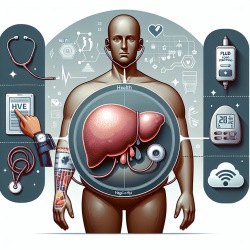The systematic review titled "Understanding the Impact of Adverse Childhood Experiences on Non-suicidal Self-Injury in Youth" provides valuable insights into the relationship between adverse childhood experiences (ACEs) and non-suicidal self-injury (NSSI) in youth. This research is crucial for practitioners seeking to improve their skills and understanding of how to effectively intervene in cases involving NSSI.
The Connection Between ACEs and NSSI
NSSI is a significant public health issue characterized by deliberate self-inflicted harm without suicidal intent. The research highlights that ACEs, which include traumatic events such as abuse, neglect, and household dysfunction, are strongly correlated with NSSI behaviors. The systematic review analyzed 21 unique studies and found a statistically significant link between higher ACE scores and increased likelihood of NSSI.
Key Findings
- Youth with higher ACE scores are more likely to engage in NSSI.
- The types of ACEs strongly associated with NSSI include physical, sexual, and emotional abuse, parental neglect, substance use issues within the family, parental separation, and the death of a close family member.
- The likelihood of engaging in NSSI increases with the number of ACEs experienced by an individual.
Implications for Practitioners
This research underscores the importance of early intervention and comprehensive assessment in preventing NSSI among youth. Practitioners should consider incorporating the following strategies into their practice:
Administering the ACE Questionnaire
The ACE questionnaire is a valuable tool for identifying at-risk individuals. By assessing the number and types of adverse experiences a child has faced, practitioners can tailor interventions to meet their specific needs.
Psychoeducation for Families
Educating families about the impact of ACEs on mental health can empower them to create supportive environments that mitigate these effects. Encouraging open communication and providing resources for family therapy can be beneficial.
Cognitive Behavioral Therapy (CBT)
CBT has been shown to be effective in addressing NSSI by helping individuals develop healthier coping mechanisms and improving emotional regulation. Practitioners should consider integrating CBT into treatment plans for those affected by ACEs.
The Importance of Further Research
The systematic review highlights gaps in existing literature that warrant further exploration. Areas such as gender differences in NSSI behavior and the role of social support systems need more investigation to refine intervention strategies.
Practitioners are encouraged to stay informed about ongoing research developments through professional networks, conferences, and publications. Engaging with current studies can enhance their ability to provide evidence-based care.
A Call to Action
The findings from this systematic review emphasize the critical role practitioners play in addressing NSSI through understanding ACEs. By implementing research insights into practice, they can significantly improve outcomes for affected youth.










